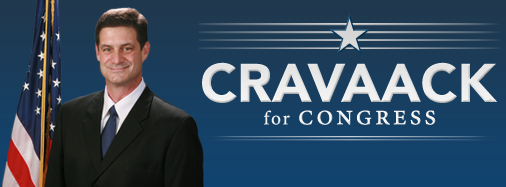(Minnesota Public Radio) – November 30, 2010
By Bob Kelleher
Duluth, Minn. — Incoming Republican U.S. Reps. Chip Cravaack and Sean Duffy met in Duluth Tuesday for a briefing on Great Lakes, port and shipping issues.
Both GOP freshmen are replacing high-profile, senior congressional Democrats whose districts are bounded by the states’ border — Jim Oberstar lost his seat to Cravaack in Minnesota’s 8th district, and David Obey retired from Wisconsin’s 7th District.
Cravaack and Duffy held a brief news conference that provided few specifics about their positions — beyond the need to rein in federal spending.
Port authority officials outlined a host of issues facing the Great Lakes’ and its economy — from environmental protection to infrastructure improvements to mining.
They are expensive issues that could consume a lot of federal dollars — and therefore trouble the two conservative incoming House members, who campaigned on a platform of curbing federal spending.
The federal government is responsible for dredging harbors like Duluth-Superior, and has invested millions of dollars in port improvements.
A new shipping lock planned to accommodate the largest lake ships at Sault Ste. Marie, Michigan could cost an estimated $500 million, but that project is currently on hold for lack of funding.
Cravaack sounded supportive, but stopped far short of committing to support federal spending on improvements like that.
“That’s one thing we’re learning about just today. We know that infrastructure is aging, and that’s something we definitely have to take a look at, that can promote the economy on the Great Lakes,” Cravaack said.
In some cases, supporting shipping can be at odds with supporting the environment. For example, it could cost ship owners millions of dollars to retrofit their fleets to meet stringent new ballast water regulations in the coming years.
Similarly, Cravaack met recently with officials from PolyMet Mining, and came away voicing support for the copper-nickel mining project on Minnesota’s Iron Range and the jobs it would create.
Opponents of the mine worry about sulfide pollution. Cravaack expressed a need for balance.
“The balance of forces … between the economy, the environment; trying to do what’s best for our districts; and trying to get the best possible scenario, where we all can benefit and move forward in getting this great economy going once again in this area,” Cravaack said.
Wisconsin’s Sean Duffy had a similar sentiment.
“I think there’s a balance,” Duffy said. “A lot of times folks might see as a competing interest between the economy and the environment. And I think both can be successful and both can accomplish their goals.”
But what came out most clearly was each candidate’s commitment to curtail federal spending. Duffy said he campaigned to turn back federal non-defense discretionary spending to 2008 levels. Cravaack suggested a need for even more aggressive cutting.
“It’s a good start. There’s more to be done. Much more to be done,” he said.
Cravaack did not rule out pushing for cuts to projects already in the works. Cravaack hinted as much shortly after the election, showing little interest in a recreational trail that would connect two established trails on either side of Duluth.
“I just spoke with Mayor Ness this morning about these issues, and again, this is something we’re going to have to take a look at,” said Cravaack. “Is it a need or a want, and can we afford it? That truly is the bottom line.”
Cravaack said the port visit is part of an effort to get out and see what people in the district need from Congress. He said he needs to learn what’s essential — but the right money has to go to the right projects.
“I was in the military during the Clinton administration, and remember we right-sized the military?” said Cravaack. “I think it’s time that we right size the federal government as well, and this is something we need to take a look at. We have to rein in spending. We cannot spend more than we take in.”
Cravaack said it will be late December before he knows which committees he’ll be assigned in the U.S. House. He said he hopes to be seated on several panels: Energy and Commerce, Transportation and Infrastructure’s Aviation Subcommittee, and Armed Forces and Intelligence.
House committee appointments could be made by Christmas.








Leave Your Response